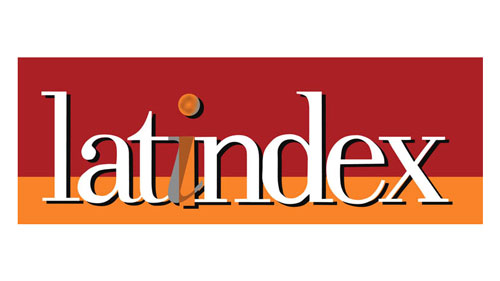Ensaio sobre o fetichismo no bilinguismo
DOI:
https://doi.org/10.26512/rhla.v22i1.47012Palabras clave:
Educação bilíngue;, Translinguagem, Fetiche, PsicanáliseResumen
O presente trabalho é um ensaio de reflexão teórica sobre o crescente movimento de oferta de programas de educação bilíngue na educação básica brasileira. Especificamente, o estudo enfoca e problematiza o significante “bilíngue” que nomeia tais iniciativas, propondo que há significados subjacentes que conduzem a uma fixação de tal significante como fetiche. A noção de “fetiche” é abordada através de elementos do marxismo e da psicanálise. O texto propõe que a translinguagem emerge como uma possibilidade de ressignificação do bilinguismo que permite um olhar não alienante desse tipo de proposta educacional.
Descargas
Citas
BACHMAN, L. Fundamental considerations in language testing. Oxford/New York: Oxford University Press, 1990.
BERNS, M. S.; DE BOT, K.; HASEBRINK, U. (Ed.). In the presence of English: media and European youth. New York: Springer, 2007.
BRASIL. Diretrizes Curriculares Nacionais para a oferta de Educação Plurilíngue. Brasília: Ministério da Educação/Conselho Nacional de Educação, 2020. Disponível em: http://portal.mec.gov.br/docman/setembro-2020-pdf/156861-pceb002-20/file. Acesso em: 12 jan. 2023.
CABRAL, F. T.; LESSA, A. T. M. Content and language integrated learning toward proficiency: an analysis of its potential in a public bilingual education programme. Caderno de Letras, n. 36, p. 345-360, 2020.
CARRIÓ-PASTOR, M. L. CLIL vs EMI: different approaches or the same dog with a different collar? In: CARRIÓ-PASTOR, M. L.; BELLES-FORTUÑO, B. (Ed.). Teaching language and content in multicultural and multilingual classrooms – CLIL and EMI Approaches. Cham, CH: Palgrave-Macmillan, 2021. p. 13-30.
CORACINI, M. J. A celebração do Outro – arquivo, memória e identidade: línguas (materna e estrangeira), Plurilinguismo e Tradução. Campinas, SP: Mercado de Letras, 2007.
CREESE, A.; BLACKLEDGE, A. Translanguaging in the bilingual classroom: a pedagogy for learning and teaching? The Modern Language Journal, v. 94, n. 1, p. 103-115, 2010.
DANIEL, M. Pesquisadora fala sobre a benéfica relação entre bilinguismo e a neurociência. Revista Educação, 16 maio 2020. Disponível em: https://revistaeducacao.com.br/2020/05/16/bilinguismo-neurociencia-ingrid/. Acesso em: 12 jan. 2023.
DERIVRY-PLARD, M.; GRIFFIN, C. Beyond symbolic violence in ELT in France. In: AGUDO, J. D. M. (Ed.). Native and non-native teachers in English language classrooms – professional challenges and teacher education. Berlin/Boston: Walter de Gruyter, 2017. p. 32-51.
FREUD, S. (1927). Fetichismo. In: ______. Edição standard brasileira das obras psicológicas completas de Sigmund Freud – Volume XXI. Tradução de José Octávio de Aguiar Abreu. Rio de Janeiro: Imago, 1974. p. 175-185.
GARCÍA, O.; WEI, L. Translanguaging: Language, Bilingualism and Education. Hampshire/New York: Palgrave MacMillan, 2014.
GIMENEZ, T.; CALVO, L. C. S.; EL KADRI, M. S. Beyond Madonna: Teaching materials as windows into pre-service teachers’ understandings of ELF (2015). In: BAYYURT, Y.; AKCAN, S. (Ed.). Current perspectives on pedagogy for English as Lingua Franca. Berlin/Boston: De Gruyter/Mouton, 2015. p. 225-237.
GROSJEAN, F. Neurolinguists, beware! The bilingual is not two monolinguals in one person. Brain and Language, v. 36, p. 3-15, 1989.
LACAN, J. (1966). A significação do falo. In: _____. Escritos. Tradução de Vera Ribeiro. Rio de Janeiro: Jorge Zahar Ed., 1998. p. 692-703.
LACAN, J. As psicoses – o Seminário Livro 3. Tradução de Aluisio Menezes. Rio de Janeiro: Jorge Zahar Ed., 1985.
LACAN, J. (1966). Função e campo da fala e da linguagem em psicanálise. In: _____. Escritos. Tradução de Vera Ribeiro. Rio de Janeiro: Jorge Zahar Ed., 1998. p. 238-325.
LEROY, H. R. Dos sertões para as fronteiras e das fronteiras para os sertões – por uma travessia translíngue e decolonial no ensino aprendizagem de língua portuguesa adicional. Foz do Iguaçu, PR: Editora Universidade Federal da Integração Latino-Americana, 2021.
LIMA, D. C. (Org.). Inglês em escolas públicas não funciona? Uma questão, múltiplos olhares. São Paulo: Parábola Editorial, 2011.
LONG, M. H. Problems in SLA. Mahwah, NJ: Lawrence Erlbaum Associates, 2007.
LYSTER, R. Learning and Teaching Languages through Content: a counterbalanced approach. Amsterdam/Philadelphia: John Benjamins, 2007.
MACWHINNEY, B. Entrenchment in second language acquisition. In: SCHMID, H-J. (Ed.). Entrenchment and the psychology of language learning – How we reorganize and adapt linguistic knowledge. Washington, DC: American Psychological Association; Berlin: Mouton De Gruyter. 2017. p. 343-366.
MARCELINO, M. Second language acquisition in english bilingual contexts – the generative perspective. Revista do GELNE, v. 15, n. 1/2, p. 459-468, 2013.
MARSH, D. CLIL/EMILE – The European Dimension. Jyväskylä, FI: UniCOM – Center for Continuing Education/University of Jyväskylä (Finlândia), 2001.
MARX, K. (1867). O Capital – Crítica da Economia Política Livro 1. 35. ed. Rio de Janeiro: Civilização Brasileira, 2017.
MEGALE, A. H. Bilinguismo e educação bilíngue: discutindo conceitos. Revista Virtual de Estudos da Linguagem – ReVEL, v. 3, n. 5, ago. 2005. Disponível em: http://www.revel.inf.br/files/artigos/revel_5_bilinguismo_e_educacao_bilingue.pdf. Acesso em: 10 jan. 2023.
NEVES, M. S.; LEITE, N. C. A pesquisa psicanalítica como intervenção na formação continuada de professores de língua inglesa. In: VOLTONI, R.; GURSKY, R. (Org.). Retratos da pesquisa em Psicanálise e Educação. São Paulo: Contracorrente, 2020. p. 179-200.
OLIVEIRA, C. O chiste, a mais-valia e o mais-de-gozar – ou o capitalismo como uma piada. Estudos Lacanianos, v. 1, n. 1, p. 57-68, 2008.
O’REGAN, J. Global English and political economy. London/New York: Routledge, 2021.
ORTEGA, L. SLA for the 21st century: disciplinary progress, transdisciplinary relevance, and the bi/multilingual turn. Language Learning, v. 63, suppl. 1, p. 1-24, 2013.
PENNYCOOK, A. The cultural politics of English as an international language. London/New York: Longman Group, 1994.
PEREIRA, M. R. A impostura do mestre. Belo Horizonte: Argumentum, 2005.
PEREIRA, M. R. O nome atual do mal-estar docente. Belo Horizonte: Fino Traço, 2016.
PHILLIPSON, R. Linguistic imperialism. Oxford/New York: Oxford University Press, 1992.
PHILLIPSON, R. Linguistic imperialism continued. Hyderabad, IN: Orient Blackswan Private Limited, 2009.
RAJAGOPALAN, K. Non-native speaker teachers of English and their anxieties: Ingredients for an experiment in action research. In: LLURDA, E. (Ed.). Non-Native language teachers – perceptions, challenges and contributions to the profession. New York: Springer, 2005. p. 283-303.
SAFATLE, V. Fetichismo: colonizar o Outro. Rio de Janeiro: Civilização Brasileira, 2010.
SAFATLE, V. Maneiras de transformar mundos: Lacan, política e emancipação. Belo Horizonte: Autêntica, 2020.
SEGALOWITZ, N. Cognitive bases of second language fluency. London/New York: Routledge, 2010.
SELVI, A. F.; RUDOLPH, N. Teachers and the negotiation of identities: implications and challenges for second language teacher education. In: AGUDO, J. D. M. (Ed.). Native and non-native teachers in english language classrooms: professional challenges and teacher education. Berlin/Boston: Walter de Gruyter, 2017. p. 257-272.
SILVA, A. C. O. Mediação tecnológica e uso da língua inglesa em dois contextos universitários brasileiros. 2012. 182 f. Tese (Doutorado em Linguística Aplicada) – Universidade Federal de Minas Gerais, Belo Horizonte, 2012.
TALBOT, K. R.; GRUBER, M-T.; NISHIDA, R. (Ed.). The psychological experience of integrating language and content. Bristol, UK: Multilingual Matters, 2021.
VALADARES, M. G. P. F. Padrões emergentes de dominância linguística em português e inglês: o impacto de práticas socioculturais de letramento (Digital) na amplitude lexical de brasileiros falantes de língua inglesa como L2. 2017. 146 f. Tese (Doutorado em Linguística Aplicada) – Universidade Federal de Minas Gerais, Belo Horizonte, 2017.
VERAS, V. O extrangeiro na língua maternal: (não) desejar as coisas alheias. Revista Solta a Voz, v. 19, n. 1. p. 111-124, 2008.
WHITE, L. Second language acquisition and universal grammar. Cambridge/New York: Cambridge University Press, 2003.
WHITE, L. Second language acquisition: from initial to final state. In: ARCHIBALD, J. (Ed.). Second language acquisition and linguistic theory. Hoboken, NJ: Wiley-Blackwell, 2000. p. 130-195.
Descargas
Publicado
Cómo citar
Número
Sección
Licencia
Derechos de autor 2023 Revista Horizontes de Linguistica Aplicada

Esta obra está bajo una licencia internacional Creative Commons Atribución-NoComercial-SinDerivadas 4.0.

A Revista Horizontes de Linguística Aplicada de http://seer.bce.unb.br/index.php/horizontesla/index é licenciado sob uma Licença Creative Commons Atribuição-Uso não-comercial-Vedada a criação de obras derivadas 3.0 Unported.
- Autores mantém os direitos autorais e concedem à revista o direito de primeira publicação, sendo o trabalho simultaneamente licenciado sob a Creative Commons Attribution License o que permite o compartilhamento do trabalho com reconhecimento da autoria do trabalho e publicação inicial nesta revista.
- Autores têm autorização para assumir contratos adicionais separadamente, para distribuição não-exclusiva da versão do trabalho publicada nesta revista (ex.: publicar em repositório institucional ou como capítulo de livro), com reconhecimento de autoria e publicação inicial nesta revista.




